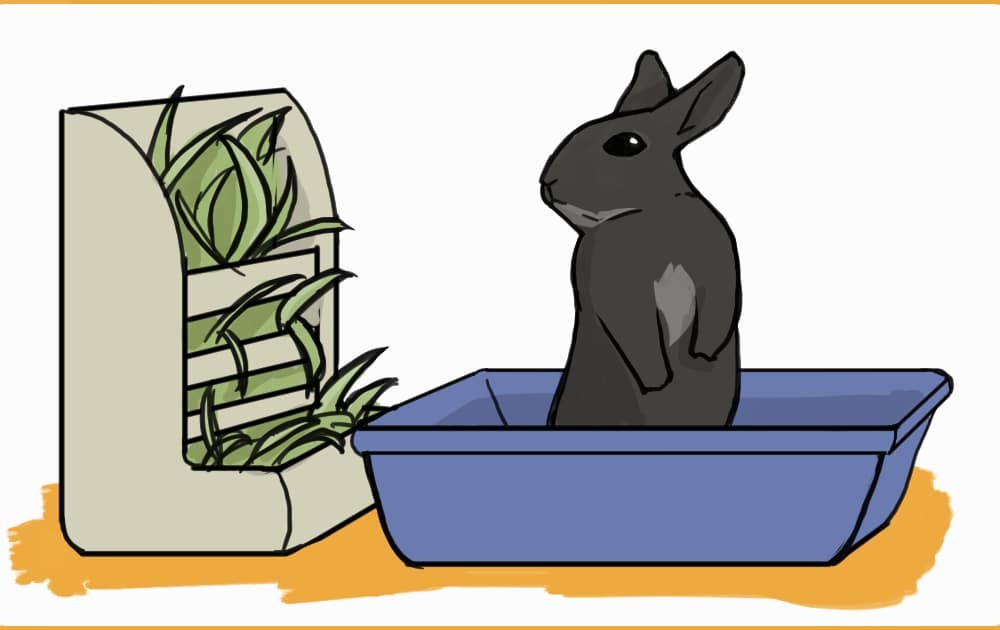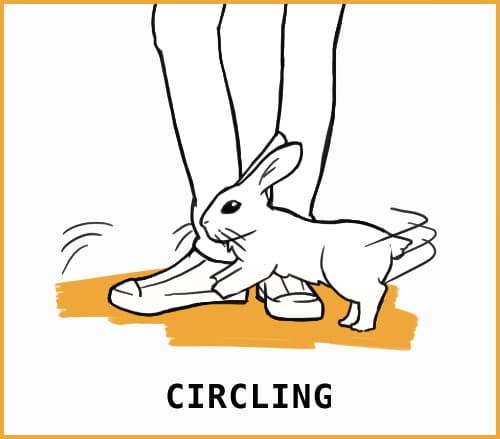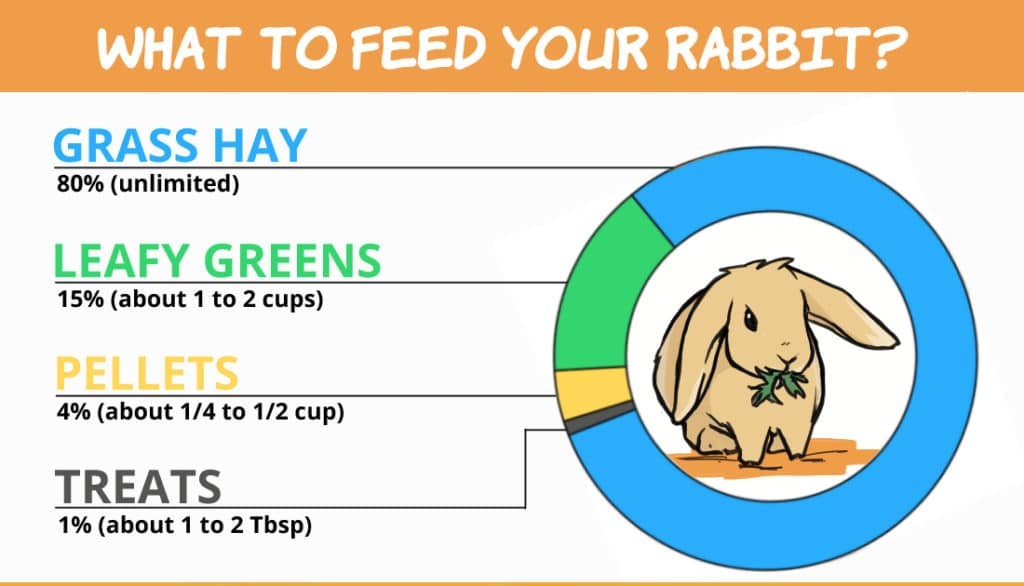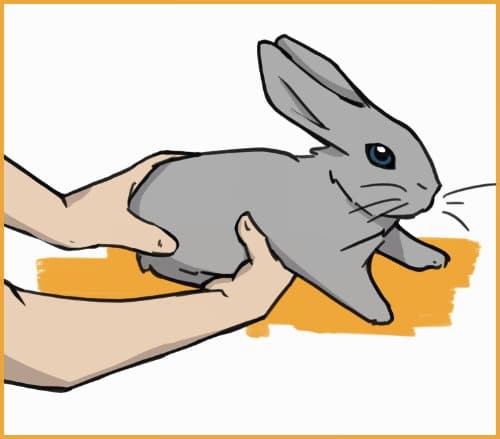Can Rabbits Be House Pets? Absolutely! Rabbits can be wonderful and affectionate companions, bringing joy and personality into your home. At PETS.EDU.VN, we believe understanding their needs is key to a happy bunny and owner. This comprehensive guide explores the delightful and sometimes challenging aspects of rabbit ownership, offering expert advice on creating a fulfilling life for your lagomorph friend and discover how to make them great indoor companions.
1. The Alluring Appeal of Rabbits as House Pets
Rabbits, with their fluffy tails and endearing personalities, often capture the hearts of potential pet owners. But are they truly suited to life indoors as house pets? The answer is a resounding yes, with the right preparation and understanding.
1.1. The Quiet Companions
One of the most appealing aspects of rabbits is their quiet nature. Unlike dogs that bark or cats that meow, rabbits are generally silent creatures. A study published in the “Journal of Applied Animal Welfare Science” emphasizes that rabbits communicate primarily through body language and subtle vocalizations. This makes them ideal for apartment living or households seeking a peaceful atmosphere.
Rabbits do make some sounds, with the most notable being a “thump” of their hind legs. As explained by the experts at PETS.EDU.VN, a thump can signify either frustration or fear. It’s a way for them to communicate their emotions, and understanding these signals is crucial for responsible pet ownership.
1.2. Litterbox Savvy
Forget the stereotype of messy rodents. Rabbits are surprisingly clean animals and can be easily litterbox trained. This not only simplifies cleanup but also allows them to roam freely in your home without the worry of accidents.
The process involves placing a litterbox in their preferred bathroom spot. According to the Rabbit Welfare Association & Trust (RWAT), rabbits often choose a corner of their enclosure to relieve themselves. By placing the litterbox there, you’re encouraging them to use it consistently.
1.3. Cleanliness is Next to Rabbitness
Rabbits are meticulous groomers, spending a significant portion of their day keeping themselves clean. This reduces the need for frequent baths, which can actually be stressful for them. Their inherent cleanliness contributes to a pleasant living environment for both the rabbit and its owner.
However, regular grooming is still essential, especially during shedding season. As recommended by the American Rabbit Breeders Association (ARBA), brushing your rabbit regularly helps remove loose fur, preventing matting and hairballs. This is a great way to bond with your bunny and maintain its hygiene.
1.4. Long-Term Companionship
Unlike smaller rodents with shorter lifespans, rabbits can live for 8-12 years or even longer with proper care. This means bringing a rabbit into your home is a long-term commitment.
Choosing a pet is a decision that must be considered carefully. Make sure you are ready to welcome a new family member into your home. PETS.EDU.VN stresses the importance of considering the long-term commitment involved in pet ownership, ensuring you’re prepared to provide a stable and loving home for the duration of your rabbit’s life.
1.5. Trainable and Engaging
Rabbits are intelligent creatures that can be trained to perform tricks and follow commands. Positive reinforcement techniques, such as rewarding desired behaviors with treats, can be highly effective.
Training your rabbit is a fun and rewarding experience. It allows you to bond with your pet, stimulate their minds, and even teach them practical skills like coming when called or using a specific area for playtime.
1.6. Social Butterflies
Rabbits are social animals that enjoy interacting with their human companions. They crave attention and affection, often expressing their love through gentle nudges, licks, and playful binkies (joyful hops and twists).
Building a strong bond with your rabbit involves spending quality time with them, providing enrichment activities, and understanding their unique personality. At PETS.EDU.VN, you can discover expert tips on how to create a loving and fulfilling relationship with your bunny.
1.7. Gentle and Approachable
Rabbits are generally gentle creatures, especially when properly socialized. They are not prone to aggression unless they feel threatened or cornered.
PETS.EDU.VN promotes gentle handling and positive interactions with rabbits. By understanding their body language and respecting their boundaries, you can create a safe and comfortable environment where they can thrive.
1.8. Love to be Petted
Many rabbits enjoy being petted, especially on their head, cheeks, and behind their ears. Regular petting sessions are a great way to bond with your rabbit and provide them with physical comfort and relaxation.
However, it’s important to note that not all rabbits enjoy being touched in the same way. Some may prefer gentle strokes, while others may enjoy a more vigorous massage. Paying attention to your rabbit’s body language will help you determine their preferences and provide them with the most enjoyable petting experience.
1.9. Undeniably Adorable
Let’s face it, rabbits are undeniably adorable. Their fluffy fur, twitching noses, and playful antics make them irresistible companions. From their zoomies and binkies to their adorable grooming habits, rabbits bring a unique charm to any home.
Furthermore, they come in various sizes, breeds, and colors, making it easy to find a bunny that melts your heart. The Netherland Dwarf rabbits and Mini Rex rabbits are among some of the most popular breeds with pet owners.
2. The Realistic Responsibilities of Rabbit Ownership
While rabbits offer many benefits as house pets, it’s crucial to acknowledge the responsibilities that come with caring for them.
2.1. The Chewing Challenge
Rabbits have a natural instinct to chew, as their teeth are constantly growing. This can lead to them gnawing on furniture, wires, and other household items.
Rabbit-proofing your home is essential for their safety and the preservation of your belongings. PETS.EDU.VN offers practical advice on how to protect your home from your rabbit’s chewing habits, including covering wires, providing chew toys, and using barriers to restrict access to certain areas.
2.2. The Handling Hesitation
Most rabbits dislike being picked up or held, as it triggers their natural prey instincts.
Learning how to interact with your rabbit on their level is crucial for building trust and avoiding unnecessary stress. PETS.EDU.VN provides guidance on how to approach, pet, and interact with your rabbit in a way that respects their boundaries and promotes a positive relationship.
2.3. The Spacious Sanctuary
Rabbits require ample space to roam, exercise, and express their natural behaviors. Small cages are not suitable for long-term housing.
Providing your rabbit with a spacious enclosure, such as a large cage or a dedicated room, is essential for their well-being. PETS.EDU.VN recommends a minimum enclosure size of at least 8 square feet, with access to a larger exercise area for several hours each day.
2.4. The Attentive Caretaker
Rabbits are social animals that require regular interaction and attention. They cannot be left alone for extended periods without proper enrichment and socialization.
Engaging with your rabbit through playtime, petting, and training is essential for their mental and emotional well-being. PETS.EDU.VN offers ideas for enrichment activities, such as providing chew toys, tunnels, and puzzle feeders, to keep your rabbit entertained and stimulated.
2.5. The Delicate Digestion
Rabbits have sensitive digestive systems that require a specific diet consisting primarily of hay, fresh vegetables, and limited amounts of pellets.
Understanding your rabbit’s dietary needs is crucial for preventing digestive problems. PETS.EDU.VN provides detailed information on the ideal rabbit diet, including the types of hay and vegetables to offer, as well as the appropriate amount of pellets to feed.
2.6. The Veterinary Venture
Rabbit-savvy veterinarians can be difficult to find, and their care can be expensive.
Finding a veterinarian with experience treating rabbits is essential for ensuring your pet receives proper medical care. PETS.EDU.VN recommends researching rabbit-savvy vets in your area and scheduling regular checkups to monitor your rabbit’s health.
2.7. The Fragile Frame
Rabbits have delicate bone structures that make them prone to injuries if handled improperly.
Learning how to handle your rabbit safely is essential for preventing accidental injuries. PETS.EDU.VN provides step-by-step instructions on how to pick up and hold your rabbit correctly, supporting their body weight and avoiding pressure on their spine.
2.8. The Shedding Situation
Rabbits shed a lot, and their fur can easily get on furniture, clothing, and carpets.
Regular grooming is essential for managing shedding and preventing hairballs. PETS.EDU.VN recommends brushing your rabbit several times a week, especially during shedding season, to remove loose fur and keep their coat healthy.
3. Delving into the Details: A Guide to Keeping Rabbits as Happy House Pets
Beyond the basics, several key factors contribute to a rabbit’s happiness and well-being as a house pet.
3.1. Housing: Creating a Comfortable and Safe Environment
- Size Matters: The enclosure should be large enough for the rabbit to stretch out, stand up on its hind legs, and hop around comfortably. A minimum of 8 square feet is recommended, but larger is always better.
- Solid Flooring: Wire-bottom cages can cause sore hocks (ulcerated feet) and should be avoided. Opt for solid flooring covered with soft bedding like hay, straw, or fleece.
- Enrichment: Provide plenty of enrichment items, such as chew toys, tunnels, cardboard boxes, and puzzle feeders, to keep your rabbit entertained and mentally stimulated.
- Litterbox: Place a litterbox in one corner of the enclosure, filled with rabbit-safe litter.
- Location: Position the enclosure in a quiet area of the house, away from direct sunlight, drafts, and loud noises.
3.2. Nutrition: Feeding a Healthy and Balanced Diet
- Hay is Key: Hay should make up the majority of a rabbit’s diet. It provides essential fiber for proper digestion and helps wear down their teeth. Timothy hay, orchard grass, and oat hay are good choices.
- Fresh Vegetables: Offer a variety of fresh, leafy green vegetables daily, such as romaine lettuce, kale, parsley, and cilantro.
- Limited Pellets: Pellets should be given in limited quantities, as they are high in calories and can lead to obesity. Choose a high-quality pellet that is specifically formulated for rabbits.
- Treats in Moderation: Offer occasional treats, such as small pieces of fruit or vegetables, in moderation.
- Fresh Water: Always provide fresh, clean water in a bowl or bottle.
3.3. Health: Maintaining Optimal Wellness
- Rabbit-Savvy Vet: Find a veterinarian with experience treating rabbits and schedule regular checkups.
- Vaccinations: Vaccinate your rabbit against common diseases, such as myxomatosis and rabbit hemorrhagic disease (RHD).
- Spaying/Neutering: Spaying or neutering your rabbit is essential for preventing reproductive cancers and behavioral problems.
- Parasite Control: Protect your rabbit from parasites, such as fleas, mites, and worms, by using appropriate preventative medications.
- Dental Care: Rabbits’ teeth are constantly growing, so it’s important to provide them with plenty of chew toys to wear them down.
- Recognizing Illness: Learn to recognize the signs of illness in rabbits, such as loss of appetite, lethargy, diarrhea, or respiratory problems, and seek veterinary care immediately.
3.4. Behavior: Understanding Rabbit Communication
- Body Language: Rabbits communicate through a variety of body language cues, such as ear position, tail movements, and posture.
- Thumping: Thumping their hind legs can indicate fear, alarm, or territoriality.
- Circling: Circling your feet can be a sign of affection or excitement.
- Chin Rubbing: Rubbing their chin on objects is a way for rabbits to mark their territory.
- Binkies: Binkies are joyful hops and twists that indicate happiness and excitement.
3.5. Enrichment: Providing Mental Stimulation
- Chew Toys: Provide a variety of chew toys to satisfy their natural chewing instincts and prevent them from chewing on furniture or wires.
- Tunnels and Hideaways: Rabbits enjoy exploring tunnels and hiding in enclosed spaces.
- Puzzle Feeders: Puzzle feeders challenge rabbits to solve problems to get to their food.
- Social Interaction: Spend time interacting with your rabbit, petting them, playing with them, and talking to them.
- Outdoor Access: If possible, provide your rabbit with supervised access to a safe outdoor area where they can graze and explore.
4. Addressing Common Concerns: Expert Insights from PETS.EDU.VN
Potential rabbit owners often have questions and concerns about bringing a bunny into their home. PETS.EDU.VN provides expert answers to common questions.
4.1. Are Rabbits Good Pets for Children?
Rabbits can be great family pets, but they are not always the best choice for young children. Rabbits require gentle handling and supervision, and young children may not always be able to provide this.
4.2. How Do I Know if My Rabbit Loves Me?
Rabbits express their affection in many ways, such as grooming you, circling your feet, and laying down next to you.
4.3. What Are the Best Rabbit Breeds for House Pets?
Certain rabbit breeds are known for their gentle and affectionate personalities, such as the Dutch, Mini Rex, and Lionhead.
4.4. How Do I Litterbox Train My Rabbit?
Litterbox training involves placing a litterbox in their preferred bathroom spot, rewarding them for using it, and cleaning it regularly.
4.5. How Do I Stop My Rabbit from Chewing on Everything?
Rabbit-proofing your home, providing chew toys, and redirecting their chewing behavior can help prevent them from chewing on unwanted items.
4.6. How Do I Introduce a New Rabbit to My Existing Rabbit?
Introducing rabbits slowly and gradually, providing them with separate enclosures at first, and supervising their interactions can help them bond successfully.
4.7. What Are the Signs of a Healthy Rabbit?
A healthy rabbit will have a good appetite, be active and alert, have a clean coat, and produce normal droppings.
4.8. What Are the Most Common Health Problems in Rabbits?
Common health problems in rabbits include dental disease, gastrointestinal stasis, respiratory infections, and ear infections.
4.9. How Often Should I Clean My Rabbit’s Cage?
The frequency of cage cleaning depends on the size of the enclosure and the rabbit’s habits. Generally, the litterbox should be cleaned daily, and the entire enclosure should be cleaned weekly.
4.10. What Are Some Fun Activities to Do with My Rabbit?
Fun activities to do with your rabbit include playing with toys, training them to perform tricks, and taking them for supervised outdoor excursions.
5. Maximizing the Magic: Tips for Thriving with Your House Rabbit
To ensure a harmonious relationship with your house rabbit, consider these additional tips.
- Learn Their Language: Pay attention to your rabbit’s body language to understand their needs and emotions.
- Be Patient: Building trust with a rabbit takes time and patience.
- Provide a Routine: Rabbits thrive on routine, so establish a consistent feeding and playtime schedule.
- Respect Their Space: Allow your rabbit to have their own space where they can retreat and feel safe.
- Supervise Interactions: Always supervise interactions between rabbits and children or other pets.
- Be Prepared for the Unexpected: Rabbits can be unpredictable, so be prepared for unexpected vet visits or behavioral challenges.
- Enjoy the Journey: Owning a rabbit is a rewarding experience that can bring joy and companionship to your life.
6. Statistical Snapshot: The Growing Popularity of Rabbits as Pets
The popularity of rabbits as house pets has been steadily increasing in recent years. According to the American Pet Products Association (APPA), approximately 2 million households in the United States own rabbits. This number is expected to continue to grow as more people discover the joys of rabbit ownership.
- Popular Breeds: The most popular rabbit breeds in the United States include the Dutch, Mini Rex, and Lionhead.
- Average Lifespan: The average lifespan of a pet rabbit is 8-12 years.
- Average Cost of Care: The average annual cost of caring for a rabbit is $700-$1000.
- Common Health Problems: The most common health problems in rabbits include dental disease, gastrointestinal stasis, and respiratory infections.
7. The Latest Developments in Rabbit Care
The field of rabbit care is constantly evolving, with new research and advancements emerging regularly. Stay informed about the latest developments to provide your rabbit with the best possible care.
| Category | Latest Developments |
|---|---|
| Nutrition | New research suggests that a diet higher in fiber and lower in carbohydrates may be beneficial for preventing dental disease and gastrointestinal stasis. |
| Veterinary Care | Advancements in diagnostic imaging and surgical techniques are improving the treatment of rabbit health problems. |
| Behavior | Researchers are gaining a better understanding of rabbit behavior and communication, leading to more effective training and enrichment methods. |
| Housing | New products and designs are emerging to provide rabbits with more spacious and stimulating enclosures. |
| Disease Prevention | New vaccines and preventative medications are being developed to protect rabbits from common diseases and parasites. |





8. Still Undecided? Take Our Quiz!
Want to know if you are ready to own a rabbit? Answer these questions below!
- Are you prepared to provide a spacious and enriching environment for a rabbit?
- Are you committed to feeding your rabbit a healthy and balanced diet?
- Are you willing to seek out a rabbit-savvy veterinarian and provide regular medical care?
- Are you prepared to handle a pet that may not like being held or cuddled?
- Are you willing to clean up after a pet that sheds a lot?
- Are you ready to commit to a pet for the next 8-12 years?
- Are you willing to rabbit-proof your home to protect your belongings and your pet?
- Can you afford the cost of rabbit care, including food, vet bills, and supplies?
- Are you able to provide your rabbit with daily interaction and attention?
- Are you prepared to handle the challenges of rabbit ownership, such as behavioral problems or unexpected vet visits?
If you answered “yes” to most of these questions, you may be ready to own a rabbit. If you answered “no” to several of these questions, you may want to reconsider whether a rabbit is the right pet for you.
9. Frequently Asked Questions (FAQ)
Q1: Are rabbits high-maintenance pets?
Rabbits require more care than some people expect, needing specific diets, spacious housing, and regular interaction.
Q2: Do rabbits smell?
Rabbits themselves are clean, but their urine can have an odor. Regular cleaning of their enclosure is essential.
Q3: Can rabbits be left alone during the day?
Rabbits are social and need interaction, but they can be left alone for reasonable periods if provided with enough space, food, and enrichment.
Q4: What is the best way to bond with my rabbit?
Spend time on the floor with them, offer treats, and learn their body language to build trust.
Q5: Are rabbits good pets for apartments?
Yes, rabbits can thrive in apartments as long as they have enough space to exercise and are provided with a stimulating environment.
Q6: What should I do if my rabbit stops eating?
A sudden loss of appetite can indicate a serious health problem. Seek veterinary care immediately.
Q7: How do I groom my rabbit?
Brush them regularly to remove loose fur and prevent matting.
Q8: Can I train my rabbit to do tricks?
Yes, rabbits are intelligent and can be trained using positive reinforcement techniques.
Q9: What kind of toys do rabbits enjoy?
Rabbits enjoy chew toys, tunnels, cardboard boxes, and puzzle feeders.
Q10: How do I find a rabbit-savvy veterinarian?
Ask your local rabbit rescue organization for recommendations or search online directories of rabbit veterinarians.
10. Ready to Welcome a Bunny? PETS.EDU.VN is Your Guide
Can rabbits be house pets? Absolutely, if you’re prepared for the commitment! At PETS.EDU.VN, we’re dedicated to providing you with the resources and information you need to make informed decisions about pet ownership and ensure the well-being of your furry friends. Whether you’re a first-time rabbit owner or an experienced bunny enthusiast, we’re here to support you every step of the way.
Visit PETS.EDU.VN today to discover a wealth of expert advice on rabbit care, including:
- Detailed guides on housing, nutrition, and health
- Tips on training, enrichment, and bonding
- Answers to frequently asked questions
- A directory of rabbit-savvy veterinarians
- A community forum where you can connect with other rabbit owners
Take the first step towards creating a happy and fulfilling life for your rabbit by exploring pets.edu.vn. Contact us at 789 Paw Lane, Petville, CA 91234, United States, Whatsapp: +1 555-987-6543. Your bunny will thank you for it!